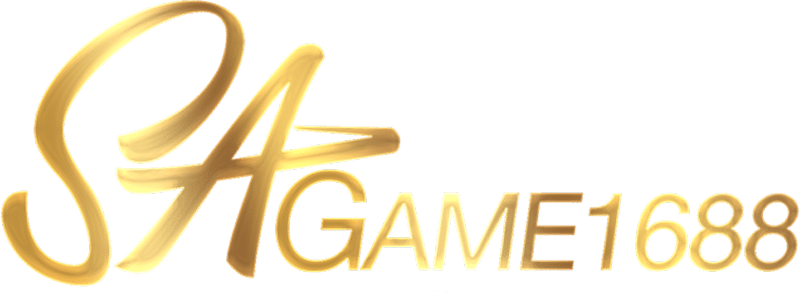Building upon the foundational ideas explored in The Value of Free: From Medieval Sovereignty to Digital Rewards, this article delves into the intricate ways in which the concept of “free” influences modern digital society. From evolving notions of sovereignty to the economic, social, and cultural transformations driven by free digital access, understanding these shifts is essential for grasping our current and future societal landscape.
Contents
- Introduction: The Digital Shift – Redefining Free in Society Today
- From Sovereignty to Data Sovereignty: The New Frontier of Freedom
- The Economics of Free: Digital Goods, Services, and the New Value Exchange
- Free vs. Privacy: Navigating the Boundaries of Digital Liberty
- The Social Construction of Free: Community, Participation, and Collective Agency
- The Cultural Impact of Free: Democratization of Knowledge and Expression
- Challenges and Risks: Dependency, Exploitation, and the Illusion of Free
- Returning to the Parent Theme: The Continuing Value of Free in Digital Sovereignty
Introduction: The Digital Shift – Redefining Free in Society Today
The concept of “free” has historically been intertwined with notions of sovereignty, liberty, and societal control. In medieval times, sovereignty signified the absolute authority of a ruler or state over their territory, often justified by divine right or customary law. Over centuries, this evolved into the idea of individual freedom—liberty from oppression and arbitrary authority—forming the bedrock of modern democratic societies.
Today, the digital revolution has transformed our understanding of “free” from physical sovereignty to intangible data and digital services. Free access to information, software, and social platforms now shapes societal interactions and economic exchanges. Recognizing how this shift impacts societal development is crucial, as it determines how power, autonomy, and participation are distributed in our increasingly interconnected world.
Connecting these historical notions to the digital age reveals that “free” is no longer merely a right granted by sovereign authority but a complex construct involving data, participation, and collective agency. As we navigate this landscape, understanding the evolution of “free” helps us critically assess its benefits and risks within our society.
From Sovereignty to Data Sovereignty: The New Frontier of Freedom
Challenging Traditional Sovereignty
Digital data challenges conventional sovereignty by shifting control from physical borders and territorial authority to data flows and digital footprints. Unlike physical assets, data can be replicated and transmitted globally at negligible cost, undermining the exclusivity traditionally associated with sovereignty.
For example, countries like the European Union have recognized the importance of digital sovereignty through regulations such as the General Data Protection Regulation (GDPR). GDPR emphasizes individual control over personal data, framing data sovereignty as a core aspect of national security and personal autonomy.
Implications for Autonomy
Digital sovereignty enhances individual autonomy by granting users more control over their personal information and digital identities. However, it also introduces new vulnerabilities, such as dependency on large tech corporations that act as gatekeepers of data and digital services.
The societal impact is significant: communities and nations now grapple with balancing control over digital assets while preventing monopolistic practices that could threaten democratic participation.
Transition from Physical to Digital Control
The shift from tangible sovereignty—such as land or military power—to digital control marks a fundamental change in societal power structures. Control over data and digital infrastructure often determines a nation’s influence, reflecting a new form of sovereignty rooted in technological dominance rather than physical territory.
The Economics of Free: Digital Goods, Services, and the New Value Exchange
Reshaping Economic Models
Digital platforms such as Google, Facebook, and Wikipedia exemplify how free digital services have revolutionized traditional economic models. These platforms offer free access in exchange for user engagement, data, and advertising revenue. This “freemium” approach fosters rapid dissemination of information and innovation but also raises questions about sustainability and fairness.
The True Cost of Free
While consumers often perceive free digital services as costless, the hidden costs involve privacy erosion, targeted advertising, and data commodification. Studies estimate that user data is valued in the trillions of dollars globally, with corporations leveraging this data to influence consumer behavior, political opinions, and societal trends.
User Data as Currency and Power
In the digital economy, user data functions as a new form of currency, conferring power to those who control it. This dynamic shifts societal influence toward tech giants, creating a “data oligopoly” that parallels historical economic monopolies. The ability to collect, analyze, and monetize data grants these corporations unprecedented leverage over individual choices and societal norms.
Free vs. Privacy: Navigating the Boundaries of Digital Liberty
Compromising Personal Privacy
The pursuit of free digital experiences often entails trade-offs with personal privacy. For instance, social media platforms provide free connectivity but require extensive data sharing, leading to potential misuse or breaches. The Cambridge Analytica scandal exemplifies how personal data can be exploited for political manipulation.
Ethical Limits and Responsibilities
Ethically, societies must consider boundaries for free access, balancing innovation and privacy rights. Implementing robust data protection laws, promoting transparency, and empowering users with control over their data are essential strategies to uphold digital liberties.
Strategies for Balance
Encouraging privacy-preserving technologies, such as end-to-end encryption and decentralized platforms, can help maintain free access while safeguarding individual rights. Educating users about data practices and fostering a culture of informed consent are vital steps toward ethical digital environments.
The Social Construction of Free: Community, Participation, and Collective Agency
Fostering Community and Shared Knowledge
Free digital content, such as Wikipedia or open-source projects, fosters community by enabling collective knowledge-building. These platforms exemplify how participation creates shared resources that benefit society at large, aligning with the historical idea of sovereignty as collective authority.
Enhancing Societal Cohesion
Participation in online communities enhances societal cohesion by promoting dialogue, understanding, and collaborative problem-solving. Initiatives like open data projects or citizen science empower individuals to contribute to societal progress actively.
Challenging Power Hierarchies
Digital spaces can facilitate collective agency that challenges traditional hierarchies. Movements such as digital activism and online petitions leverage free platforms to mobilize societal change, echoing the parent theme’s emphasis on collective sovereignty.
The Cultural Impact of Free: Democratization of Knowledge and Expression
Transforming Cultural Production
Free access to digital tools like YouTube, SoundCloud, and open-source software democratizes cultural production, enabling creators worldwide to share their work without gatekeepers. This echoes the parent theme’s notion of collective agency shaping cultural identity.
Promoting Diversity or Reinforcing Inequalities?
While free digital culture promotes diversity by lowering entry barriers, it can also reinforce inequalities. Disparities in digital literacy, access, and platform algorithms influence whose voices are amplified, raising questions about true democratization.
Influence on Creativity and Identity
Free digital tools foster innovation and help shape cultural identities by providing accessible means of expression. Movements like digital art, meme culture, and online activism exemplify how free platforms drive cultural evolution.
Challenges and Risks: Dependency, Exploitation, and the Illusion of Free
Societal Vulnerabilities
Heavy reliance on free digital services can lead to vulnerabilities such as data monopolies, loss of privacy, and societal manipulation. The 2016 US elections highlighted how these dependencies can be exploited to influence public opinion.
Exploitation Risks
Exploitation occurs when free platforms monetize user data or manipulate content, often without transparent consent. This can reinforce inequalities and erode trust in digital institutions.
Mitigation Strategies
To address these risks, societies should promote digital literacy, enforce privacy regulations, and support alternative models like decentralized platforms that prioritize user rights over profit.
Returning to the Parent Theme: The Continuing Value of Free in Digital Sovereignty
Deepening the Notion of Sovereignty
The digital understanding of free extends the original concept of sovereignty by emphasizing control over digital identities and data. Sovereignty now encompasses the ability of individuals and nations to govern their digital spaces, reinforcing the importance of digital independence.
Redefining Autonomy and Power
Free digital culture redefines sovereignty by shifting power from centralized authorities to collective participation and data control. This transformation fosters a new form of autonomy rooted in technological literacy and digital rights.
Final Reflection
As society continues to evolve digitally, the principle of “free” remains foundational. It shapes our understanding of sovereignty, participation, and cultural identity, reinforcing the importance of safeguarding these values to ensure a just and resilient digital future.

